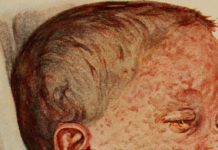
The U.S. Food and Drug Administration (FDA) recently strengthened its black box warning on fluoroquinolone use
In its recent black box warning (its strongest warning), the FDA has strengthened the current warnings on fluoroquinolone antibiotics. The drug, the US drug regulator felt, may cause significant decreases in blood sugar and certain mental health side effects.
Low blood sugar levels, also called hypoglycemia can result in serious problems, including coma, particularly in older people and patients with diabetes who are taking medicines to reduce blood sugar. The mental health side effects of fluoroquinolones include disturbances in attention, disorientation, agitation, nervousness, memory impairment, and serious disturbances in mental abilities called delirium.
Fluoroquinolone class of antibiotics includes levofloxacin, ciprofloxacin, gatifloxacin, ofloxacin, norfloxacin, moxifloxacin, trovafloxacin, delafloxacin
In 2016, FDA had issued a similar black box warning to stress serious and disabling adverse events associated with systemic fluoroquinolone use. These included damage to tendons, muscles, joints, nerves, and the central nervous system. It also advised against use of fluoroquinolones to patients with acute sinusitis, acute bronchitis and uncomplicated urinary tract infections as other antibiotics are available for treatment of such diseases.
The risks of fluoroquinolones use in such cases outweigh the benefits in these patients thereby putting a patient at risk for severe, disabling, and often permanent adverse reactions.
According to a study published by Ramanan Laxminarayan et al. titled Antibiotic Resistance in India: Drivers and Opportunities for Action, fluoroquinolones consumption is high and increasing in India. In 2010, India was the world’s largest consumer of antibiotics for human health. The study also found resistance to fluoroquinolones among invasive Salmonella typhi isolates in India increased from 8% in 2008 to 28% in 2014. Salmonella typhi is the causative organism for typhoid.
Patients who develop any serious signs and symptoms including tendon, joint and muscle pain, a “pins and needles” tingling or pricking sensation, symptoms of low sugar levels (dizziness, sweating, pounding of heart, weakness, unusual anxiety and hunger, feeling shaky, pale skin etc.), confusion and hallucinations after starting fluoroquinolone group of antibiotics should talk with their health care provider immediately.
Fluoroquinolone class of antibiotics includes levofloxacin, ciprofloxacin, gatifloxacin, ofloxacin, norfloxacin, moxifloxacin, trovafloxacin, delafloxacin and others. They are commonly prescribed for infections.
A recent study published in Clinical Infectious Diseases reported that fluoroquinolones are commonly prescribed for conditions when antibiotics are not needed at all, or when fluoroquinolones are not the recommended first-line therapy. It found that about 5% of all fluoroquinolones prescribed for adults in outpatients offices and emergency are completely unnecessary, and about 20% of all fluoroquinolone prescriptions do not adhere to recommendations about the use of fluoroquinolones as a first-line therapy.













